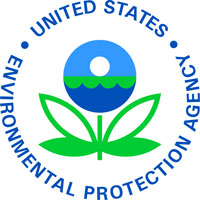Archive for April, 2010
The Lexington Herald Leader reported recently:
Environmental groups say they have found another coal mining company that has disturbed Eastern Kentucky streams without getting federal permits.
In a letter to West Virginia-based Frasure Creek Mining Co., the Sierra Club and Kentuckians for the Commonwealth said the company illegally dumped dirt and rock into streams at mountaintop-removal mines in Floyd, Magoffin and Pike counties.
Gina Sorice, a spokeswoman for Frasure Creek, said the company realized a year ago that it didn’t have the required permits and reported each case to either the Army Corps of Engineers office in Louisville or Huntington, W.Va.
The environmental groups found a similar case at a mine in Pike County two years ago.
In the current case, the groups said, state inspectors visited the mines in September and issued notices of non-compliance but took no enforcement action.
…
Please read the entire article here.
No comments yet » Leave your own...
 Sen. Alexander Sen. Cardin
Sen. Alexander Sen. CardinSenators Lamar Alexander (R-TN) and Ben Cardin (D-MD), co-sponsors of The Appalachia Restoration Act, weighed in on the EPA’s announcement Thursday of a new policy to crack down on valley fills associated with mountaintop removal coal mining.
Both Senators expressed the usefulness of the new guidelines, but also stated that only an act of Congress—in the form of The Appalachia Restoration Act—would actually put an end to the practice of mountaintop removal mining.
“The new EPA guidelines are useful in stopping some inappropriate coal mining in Appalachia,” Senator Alexander said in a statement issued Thursday, “but Congress still needs to pass the Cardin-Alexander legislation that would effectively end mountaintop removal mining.”
Senator Cardin, Chairman of the Senate Environment and Public Works Water and Wildlife Subcommittee, acknowledged the EPA’s use of verifiable science in the recent decision.
“A growing body of scientific evidence demonstrates with alarming clarity that waste from mountaintop removal mining is poisoning adjacent streams in a way we don’t have the knowledge or tools to reverse,” Cardin said in his official statement. “The new studies released today by EPA Administrator Jackson echo the commitment she made during her Senate confirmation hearing that ‘[s]cience must be the backbone of what EPA does.'”
“The guidance for approving mining permits, based on these new scientific studies, will help control the damage caused by mountaintop removal mining,” he continued. “But the science shows us that if we are to truly protect our mountains, streams and the people who depend on them, we must bring the practice of mountaintop removal mining to an end.”
“Coal is an essential part of our energy future,” Alexander said, “but it is not necessary to destroy our mountaintops in order to have enough coal to meet our needs.”
The Appalachia Restoration Act (S. 696) is a bill in the U.S. Senate which would sharply reduce mountaintop removal coal mining by making the practice of valley fills illegal. Valley fills—the dumping of waste from mountaintop removal mining into adjacent valleys and on top of headwater streams—have buried or polluted nearly 2000 miles of streams in Appalachia to date.
Here are links to more information about yesterday’s announcement:
EPA’s announcement
Alliance for Appalachia press release
Story by Bill Kovarik of Appalachian Voices
Senator Byrd’s response
Senator Cardin’s response
Senator Alexander’s response
3 Comments » Leave your own...
WASHINGTON – U.S. Senator Lamar Alexander (R-Tenn.) today issued the following statement on the new Environmental Protection Agency guidelines on surface mining permits in Appalachia:
“The new EPA guidelines are useful in stopping some inappropriate coal mining in Appalachia but Congress still needs to pass the Cardin-Alexander legislation that would effectively end mountaintop removal mining. By mountaintop removal, we mean blowing the tops off of mountains and dumping the waste in streams.
“Coal is an essential part of our energy future, but it is not necessary to destroy our mountaintops in order to have enough coal to meet our needs.”
The Cardin-Alexander Appalachian Restoration Act, introduced in 2009, would amend the Clean Water Act to define a material to be a pollutant if it replaces water with dry land or changes the depth of the body of water for any purpose. It would allow “cross-ridge mining” where a mountain’s top is moved, the underlying coal mined, and then the mountain top restored.
No comments yet » Leave your own...
The following email was sent to the 41,000 supporters of iLoveMountains.org. To sign up to receive free email alerts, click here.
 Because of your actions, the U.S. Environmental Protection Agency made an unprecedented and historic move yesterday toward curbing the devastating practice of mountaintop removal coal mining. The new policy, effective immediately for pending surface mine permits, stipulates that the practice of valley fills – which bury streams and poison Appalachia’s water sources – will not be permitted unless they meet a high standard.
Because of your actions, the U.S. Environmental Protection Agency made an unprecedented and historic move yesterday toward curbing the devastating practice of mountaintop removal coal mining. The new policy, effective immediately for pending surface mine permits, stipulates that the practice of valley fills – which bury streams and poison Appalachia’s water sources – will not be permitted unless they meet a high standard.
While this is indeed a historic moment in the fight to end mountaintop removal, and we applaud the EPA for this decision, the policy itself could be overturned by a new presidential administration. We need to pass a law making it permanently illegal to pollute the waters of Appalachia.
As Senator Lamar Alexander said in a statement issued Thursday:
“The new EPA guidelines are useful in stopping some inappropriate coal mining in Appalachia but Congress still needs to pass the Cardin-Alexander legislation that would effectively end mountaintop removal mining.”
Please help us pass the Clean Water Protection Act and the Appalachia Restoration Act, two bills which are currently in the U.S. Congress, to ensure that no administration can overturn policy and allow mountaintop removal to continue devastating the communities and environment of Appalachia.
Contact your Congressional representative about the Clean Water Protection Act (H.R. 1310) and your Senator about the Appalachia Restoration Act (S. 696) TODAY and urge them to cosponsor these bills.
Our goal is to pass this legislation THIS YEAR — help us make this a reality by calling today!
Matt Wasson
iLoveMountains.org
3 Comments » Leave your own...
– – – – – – – – – – – – – – – – – – – – – – – – – – – – -?
Contact:
Dana Kuhnline (304) 546-8473 …Dana@TheAllianceForAppalachia.org?
– – – – – – – – – – – – – – – – – – – – – – – – – – – – – –
Members of The Alliance for Appalachia praised the new policy released today by the U.S. Environmental Protection Agency which would regulate mountaintop removal mining. This tough new guidance would severely limit the impacts on water caused by mountaintop removal in central Appalachia, an important step forward for protecting communities from the environmental and health impacts of mountaintop removal.
Noting the numerous peer-reviewed studies that have highlighted the enormous cumulative impact of mountaintop removal in Appalachia, the EPA said that their actions were intended to reduce the environmental and human health impacts of the practice.
“Appalachia thanks Lisa Jackson and the EPA for taking the impacts on human health and environmental justice into consideration when issuing permits,” said Judy Bonds of Coal River Mountain Watch in West Virginia.
“Our 13,000 members are pleased that their pleas and prayers are being heard – the grandmothers and grandchildren I work with are seeing a new spark of hope today,” said Ann League of Statewide Organizing for Community Empowerment in Tennessee.
Community members hope that this decision is merely a first step along the path of ending this destructive practice – which has destroyed nearly 2,000 miles of streams and 500 mountains to date. “While there is much good news for us today, we also wonder — will this help save the community of Twilight in Boone County, WV and so many other communities that are in the mountaintop removal cross hairs? The safety of these communities depends on how these guidelines and laws are enforced,” said Vivian Stockman, with the Huntington, West Virginia based Ohio Valley Environmental Coalition.
“We expect Congress to follow the Administration’s lead by passing popular bipartisan legislation such as the Clean Water Protection Act (HR 1310), which would permanently protect the headwater streams of Appalachia,” said J.W. Randolph, Legislative Associate for Appalachian Voices.
The Alliance for Appalachia is a regional coalition of 13 groups in five states working to end mountaintop removal coal mining and support the creation of a just, sustainable economy in Appalachia. Members include: Coal River Mountain Watch, SouthWings, Kentuckians For The Commonwealth, Ohio Valley Environmental Coalition, SOCM- Statewide Organizing for Community eMpowerment, Southern Appalachian Mountain Stewards, West Virginia Highlands Conservancy, The Appalachian Citizens Law Center, Appalshop, Heartwood, Mountain Association for Community Economic Development and Appalachian Voices.
###
2 Comments » Leave your own...
Many thanks to the folks at Ohio Citizen Action for their organizing, advocacy, and support of Appalachian coalfield residents. We should also thank Mari-Lynn Evans for producing the incredible movie, Coal Country. Below is a post from Ohio Citizen Action’s blog:
Sen. Sherrod Brown announces his co-sponsorship of S. 696, a ban on mountaintop removal coal mining

AKRON — On Wednesday night, U.S. Senator Sherrod Brown announced that he was a co-sponsor of S. 696, a bill to ban mountaintop removal coal mining. The announcement came at a political fundraiser in the Akron home of Mari-Lynn Evans, Executive Producer of the movie Coal Country, which examines mountaintop removal and what it has done to Appalachian communities. After Brown’s introductory remarks, he asked for questions. Jenn Roddis, Ohio Citizen Action phone canvass crew manager, said, “I can’t help but notice that we’re standing in the home of a lady who has spoken out so passionately and eloquently against the destructive practice of mountaintop removal. I can’t help but wonder why you haven’t co-sponsored…” At this point, Brown interrupted Roddis, “I am a co-sponsor. As of today.” Then he laughed, saying, “I knew you were going to ask me that question.”
Since last June, 23,586 Ohio Citizen Action members have sent Brown letters, mostly handwritten, urging him to co-sponsor the ban. Brown is the 11th co-sponsor of the legislation, including chief sponsor, Sen. Benjamin Cardin (MD). Other co-sponsors include Sens. Lamar Alexander (TN), Bernard Sanders (VT), Robert Menendez (NJ), Sheldon Whitehouse (RI), Kirsten Gillibrand (NY), Dianne Feinstein (CA), Richard Durbin (IL), Amy Klobuchar (MN), and Frank Lautenberg (NJ). Of all the states represented by co-sponsors, Ohio uses the most coal for electricity production, and has the most powerful coal lobby.
— Paul Ryder, Organizing Director, Ohio Citizen Action
No comments yet » Leave your own...
 The science is in, and the Obama Administration is listening. Today’s issuance of guidance by the Environmental Protection Agency is an absolutely historic step in ensuring that the economy, ecology, and communities of Appalachia are better protected from the devastating impacts of mountaintop removal. Citizens from Appalachia and across America are celebrating.
The science is in, and the Obama Administration is listening. Today’s issuance of guidance by the Environmental Protection Agency is an absolutely historic step in ensuring that the economy, ecology, and communities of Appalachia are better protected from the devastating impacts of mountaintop removal. Citizens from Appalachia and across America are celebrating.
As Senator Byrd said:
“The greatest threats to the future of coal do not come from possible constraints on mountaintop removal mining or other environmental regulations, but rather from rigid mindsets, depleting coal reserves, and the declining demand for coal as more power plants begin shifting to biomass and natural gas as a way to reduce emissions. “
It is in that vein that we expect Congress to follow the Obama Administration’s lead by passing legislation that will permanently protect our homes and communities from mining waste. The Clean Water Protection Act (H.R. 1310) currently has 167 bipartisan cosponsors in the House of Representatives, and the Appalachia Restoration act (S. 696) has 10 bipartisan cosponsors in the Senate. Change in Appalachia is now inevitable, and the time for Congress to pass this legislation is now!
No comments yet » Leave your own...

For Immediate Release: Thursday, April 1, 2010
“Asked for ‘clarity’ of procedures to end uncertainty in coalfields”
Washington, DC – U.S. Senator Robert C. Byrd, D-W.Va., today responded to the Environmental Protection Agency’s (EPA) announcement of guidelines relating to water quality issues and the mining permit process. Byrd has met and discussed with EPA Administrator Lisa Jackson on several occasions and has asked her to clarify and develop a clear set of parameters for issuing mining permits to end uncertainty in the coalfields.
“Today’s announcement will hopefully now have everyone reading off the same page.”
“I, along with other elected officials, coal operators, the mining community, and environmentalists from West Virginia have been asking for a clearer, concise policy on moving forward with mountaintop mining permits and water quality issues.”
“I am pleased that EPA Administrator Jackson took our concerns about the need to provide clarity very seriously and has responded with these guidelines.”
###
No comments yet » Leave your own...

Washington, DC – U.S. Senator Benjamin L. Cardin (D-MD), chairman of the Senate Environment and Public Works Water and Wildlife Subcommittee, applauded the Environmental Protection Agency (EPA) today for its continued recognition that the best available science should be at the core of regulatory measures designed to prevent irreversible damage to our waters.
“A growing body of scientific evidence demonstrates with alarming clarity that waste from mountaintop removal mining is poisoning adjacent streams in a way we don’t have the knowledge or tools to reverse. The new studies released today by EPA Administrator Jackson echo the commitment she made during her Senate confirmation hearing that ‘[s]cience must be the backbone of what EPA does.’ The guidance for approving mining permits, based on these new scientific studies, will help control the damage caused by mountaintop removal mining. But the science shows us that if we are to truly protect our mountains, streams and the people who depend on them, we must bring the practice of mountaintop removal mining to an end.”
Senator Cardin and Senator Lamar Alexander (R-TN) have sponsored S. 696, The Appalachian Restoration Act that would end the practice of mountaintop removal coal mining. In 2009, Senator Cardin chaired the first Environment and Public Works Committee hearing in seven years examining the practice of mountaintop removal operations and its impact on the local communities and environment.
###
No comments yet » Leave your own...
As always, the award winning Ken Ward Jr. breaks the story, posting an article on his blog even before the EPA finished their conference call. We’ve re-posted snipits below. Be sure to read his entire post on his blog, Coal Tattoo.

The U.S. Environmental Protection Agency is releasing a bombshell: A major new guidance document that provides the coal industry and coal-state regulators with “clarity” regarding the permitting of mountaintop removal coal mining.
The biggest step included? EPA is warning that water pollution from these mining operations dangerously increases the electrical conductivity of streams — and setting up a much more rigorous mandate that coal operators and state mining regulators face up to this looming and long-ignored problem. But the new EPA guidance also addresses a host of other issues, from water quality monitoring to environmental justice, that are important to folks who are concerned about mountaintop removal.
As the new guidance document says:
It has been a high priority of this Administration — and EPA Administrator Lisa P. Jackson — to reduce the substantial environmental and human health consequences of surface coal mining in Appalachia, and minimize further impairment of already compromised watersheds.
As scientific evidence grows, EPA has a legal responsibility to address the environmental consequences of Appalachian surface coal mining.
Regarding the key issue of conductivity (a key measure of the presence of many harmful pollutants, such as chlorides, sulfides and dissolved solids), EPA cites the previous work of agency scientists who found that streams with conductivity of more than 500 microsiemens per centimeter were impaired.
But, EPA has also completed a draft of a new study by the agency’s Office of Research and Development that warns of impacts at even lower levels of conductivity of 300 microsiemens per centimeter.
. . .
Well, the short version is that EPA may block new permits or demand significant changes in mining plans where mining proposals are projected to cause conductivity downstream to exceed 500.
. . .
Read the entire post here.
Links to a few of Ken Ward Jr’s awards:
http://www.niemanwatchdog.org/index.cfm?fuseaction=about.viewContributors&bioid=202
http://www.encyclopedia.com/doc/1P2-14761739.html
http://www.sejarchive.org/about/stolberg_ward.htm
http://www.nationalpress.org/info-url3520/info-url_list.htm?cat_id=643
http://www.ire.org/contest/06winners.html
1 Comment » Leave your own...










 Because of your actions, the U.S. Environmental Protection Agency made an unprecedented and historic move yesterday toward curbing the devastating practice of mountaintop removal coal mining. The new policy, effective immediately for pending surface mine permits, stipulates that the practice of valley fills – which bury streams and poison Appalachia’s water sources – will not be permitted unless they meet a high standard.
Because of your actions, the U.S. Environmental Protection Agency made an unprecedented and historic move yesterday toward curbing the devastating practice of mountaintop removal coal mining. The new policy, effective immediately for pending surface mine permits, stipulates that the practice of valley fills – which bury streams and poison Appalachia’s water sources – will not be permitted unless they meet a high standard.
